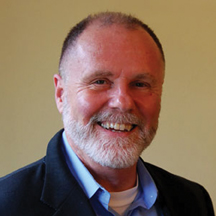 “I’ve always had a lot of casual and anonymous sex. Does that make me a sex addict?” “Isn’t the whole concept of sex addiction just another way of shaming gay men about their sexuality?” “Who says I’m addicted? Maybe I’m just a guy who likes to have a lot of sex!”
“I’ve always had a lot of casual and anonymous sex. Does that make me a sex addict?” “Isn’t the whole concept of sex addiction just another way of shaming gay men about their sexuality?” “Who says I’m addicted? Maybe I’m just a guy who likes to have a lot of sex!”
When I discuss the subject of sex addiction with gay men, I usually hear some variation of these questions and comments, all of which reflect a fundamental misunderstanding of the nature of sexual compulsion.
Recently I had the opportunity to discuss the issue of sex addiction with a man who knows a great deal about the complexities of the issue. Jim Fishman, LCSW, CGP, is a gay psychotherapist in private practice in San Francisco who has decades of experience treating many clients with sex addiction, and for many years ran a group for gay and bi-sexual men who felt at the mercy of their sexual impulses.
The first thing he emphasized in our conversation is that what makes someone a sex addict is not necessarily the kind nor the frequency of the person’s sexual behavior, but rather, the context and psychological issues involved.
“Anonymous and casual sex in and of themselves can be healthy, even affirmative, when psychologically uncomplicated,” he told me. In compulsive or addictive sex, on the other hand, sexual episodes are used to ward off, mask, deny, or manage overwhelming feelings—emotions such as depression, anxiety, emptiness, or shame. These emotions threaten to engulf a person who is emotionally fragile. In sex addiction, sex acquires a driven quality; lost in the adrenaline of the hunt, the “high” and the eventual “deflation,” the person suspends his or her conscious awareness of self and may lose track of time and place; may become negligent of personal safety, and personal and professional obligations.
In his work, Jim found that sex addiction is frequently a symptom of deeper underlying conflicts involving unprocessed or untreated childhood trauma. He said, “For some, childhoods were shattered by profound abandonment or neglect; for others, violations of personal boundaries including sexual abuse are present, leaving the adult survivor equating intimacy with abandonment and/or violation of self-hood.” In the 8 years Jim facilitated a group for gay and bi-sexual men who identified as sex addicts, he found that about 90% of all the men who entered the group had suffered some kind of sexual trauma as children, or were made to hold a sexual ‘secret.’
“If a child has experienced being ‘used’ as an object for an older person’s pleasure, the sex act itself in adulthood may actually not be all that enjoyable, especially when the person has learned, early on, that his or her value is only for the other’s purposes at his or her own expense,” he said. “In fact, dissociation may be the way he or she copes if feeling re-traumatized. The eroticization of risk can lead some to re-enact—or hold an unconscious wish to heal from—early traumatic abuse.”
If you believe that you may be suffering from sex addiction, what can you do about it? While the issues are complex, Jim told me that he has seen many people work through them and free themselves from sexual addiction, provided that they were willing to invest the considerable amount of time and energy that is required.
He is a strong believer in the efficacy of twelve-step programs like Sex Addicts Anonymous; but because so many emotional issues are involved, he also strongly recommends psychotherapy. Both individual and group therapy have strengths. Groups can act as a corrective “safe” family environment, and help members learn better to express their feelings rather than to act them out. Individual therapy, on the other hand, allows for an internally focused level of self-exploration. Concurrent individual and group therapy, Jim found, is optimal for clients. “Change and healing are gradual; there are no quick fixes,” he emphasized.
If you or someone you know would like to explore the issues raised in this column with an individual therapist, I can think of no better referral than Jim Fishman. He can be reached at 415-359-1407. While he isn’t currently facilitating groups, a twelve-week group for men of any and all sexual orientations who are dealing with problematic sexual behaviors is currently forming at the Golden Gate Integral Counseling Center. For more information, call 415-255-2602.
Tom Moon is a psychotherapist in San Francisco. For more information, please visit his website http://tommoon.net/
Recent Comments